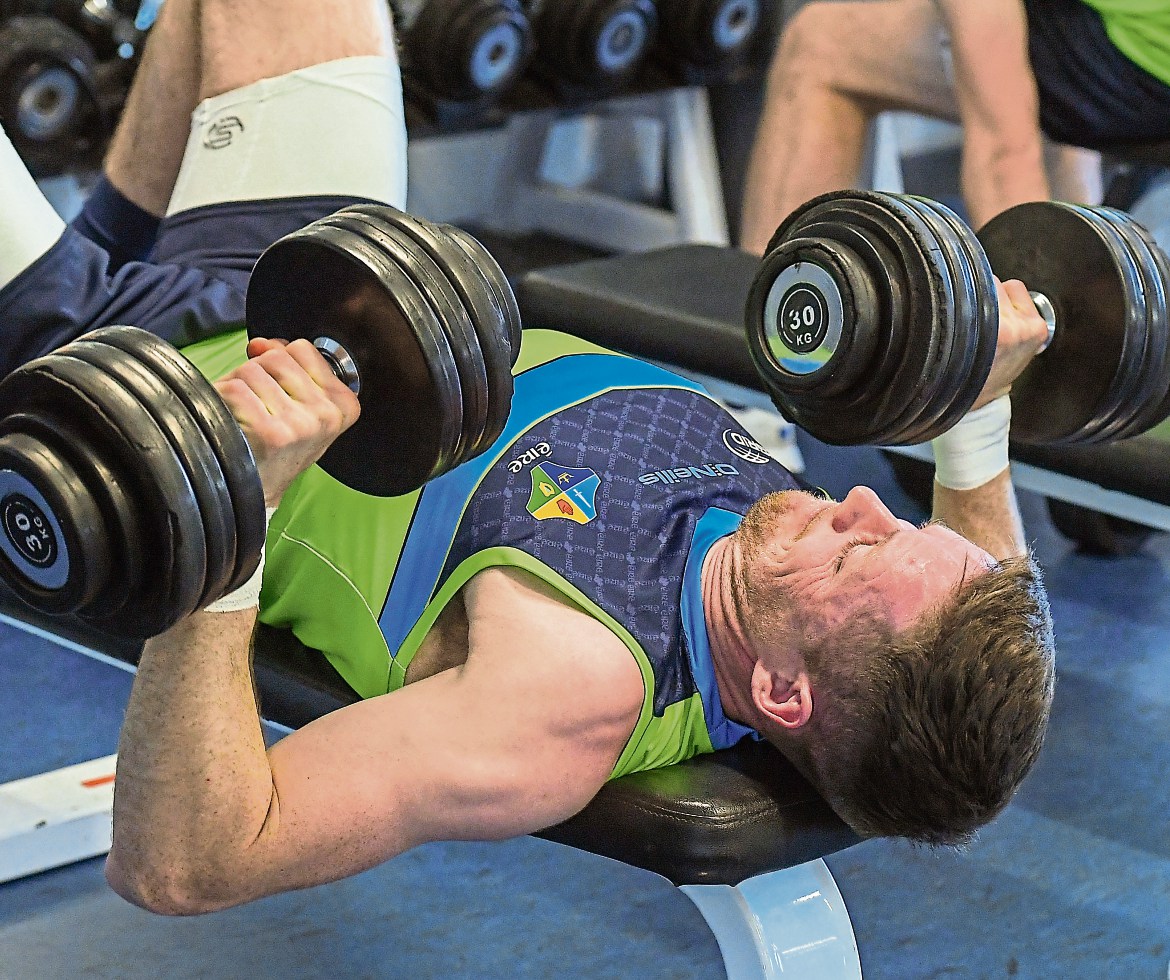DO you go to the gym and wonder exactly how many sets and repetitions you should be doing? Or maybe you are not sure how often you should be going to the gym? Thanks to research, you don’t have to guess these things. We know from several studies over the years, what the exact recipe for success is in the gym. We will answer the most common questions about designing an effective gym programme.
How Many Sets?
This will depend on how experienced you are in the gym.
Just one set of exercises, twice a week for 12 weeks, was enough to improve strength in people who were new to resistance training.
On the other hand, if you have been a regular in the gym, one set per week is not going to be enough stimulus to improve strength.
Three to four sets of exercises are required to build muscle mass and strength for experienced athletes.
How Many Reps?
The intensity of the sets can be prescribed in two ways:
1. Based on a percentage of your one repetition maximum (1RM).
To improve muscle strength, you should be using a resistance of at least 80 per cent of your 1RM.
2. It can also be determined using a prescribed zone, for example; 8-12 repetitions maximum to improve muscle mass.
To improve maximum strength, a zone of three to five repetitions is required.
How long to rest between sets?
Rest intervals between sets are required to allow the body’s energy system to recharge, before the next set.
The length of time will have an effect on your body.
For example, resting for three to five minutes between sets results in more strength.
This is due to being able to exercise at higher intensities and volumes.
Resting for 30-60 seconds between sets results in increased muscle hypertrophy or muscle mass.
The shorter rest periods produce more growth hormones during workouts.
Exercise Selection
You have the option of doing an exercise that will work on one muscle group at a time, or multiple muscle groups during a particular exercise. For example, the knee extension machine will work the quadriceps only.
In comparison, squats will work the quadriceps, glutes, hamstrings, back and core muscles all during the one exercise.
Both these options will result in strength gains.
Single muscle exercises will be useful for those who want to work a particular muscle group, possibly due to injury.
Multi-muscle exercises are more efficient for full body workouts, or for those who are limited by time in the gym.
Exercise order
The order of exercises is important to maximise performance in the gym.
It has been shown that multi-muscle exercise performance (such as squats, bench press and shoulder press) declines if they are carried out later in a session.
Doing them at the beginning of the session will result in bigger gains.
How often?
The frequency or number of times you work out each week will have an effect on your strength.
Two to three sessions per week are required to improve strength for athletes who are relatively inexperienced in the gym.
For more experienced athletes, three to four sessions are required to improve strength.
Assess, don’t guess
It is important to track your progress. By measuring your improvements, you can adjust the sets, repetitions and frequency as needed.
Simple ways of measuring progress include:
Calculate your 1RM
Use an 1RM calculator to convert your number of repetitions at a given resistance, to determine your 1RM. Record your 1RM for a given exercise over time.
Smart scales
Smart or digital scales are able to tell you the amount of muscle mass you have. This is useful if your goal is to build muscle mass, as well as strength.
Designing a gym programme
Designing a gym programme does not need to be complicated.
You now know how many sets, repetitions, frequency and order of exercises you need to do, to maximise your performance.
By measuring your progress over time, you can adjust your programme to make it more effective.
Are you frustrated with injury?
Physio Performance is a leading Sports Injury and Physiotherapy Clinic in Belfast.
We have helped get world-class athletes back on the pitch, and performing at their best.
Contact us for a complimentary Sports Injury Consultation at www.physioperformance.co.uk.
Receive quality journalism wherever you are, on any device. Keep up to date from the comfort of your own home with a digital subscription.
Any time | Any place | Anywhere












